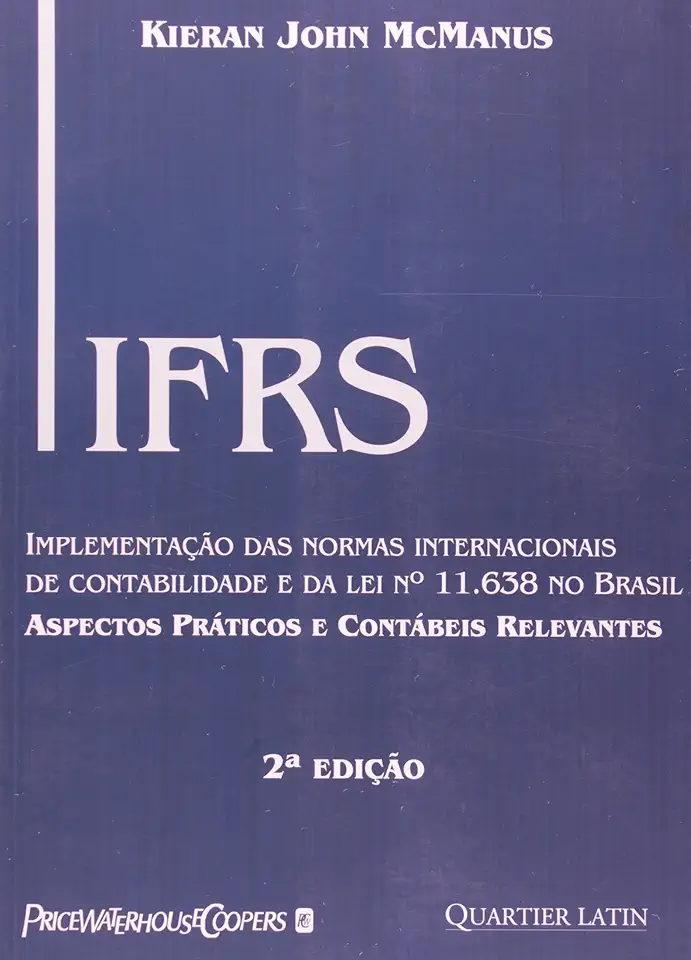
IFRS - Kieran John McManus
IFRS: A Comprehensive Guide to International Financial Reporting Standards
Introduction
In today's globalized business environment, it is essential for companies to adopt a standardized framework for financial reporting to ensure transparency, comparability, and reliability of financial information. The International Financial Reporting Standards (IFRS) provide a comprehensive set of accounting standards that are recognized and used by companies around the world.
Why IFRS?
There are several compelling reasons why companies should adopt IFRS:
Global Acceptance: IFRS are the most widely accepted accounting standards globally, used by over 140 countries. This enables companies to present their financial statements in a format that is easily understood and comparable by investors, analysts, and other stakeholders around the world.
Enhanced Comparability: IFRS promotes comparability of financial statements across different countries and industries. By using a common set of accounting principles, companies can provide users with a clear and consistent view of their financial performance and position.
Increased Transparency: IFRS requires companies to disclose more detailed and comprehensive information in their financial statements. This enhances transparency and accountability, allowing users to make informed decisions based on accurate and reliable financial information.
Improved Decision-Making: IFRS provides a consistent framework for recognizing, measuring, and reporting financial transactions. This enables users to better understand the financial health and performance of companies, facilitating informed decision-making by investors, creditors, and other stakeholders.
Key Features of IFRS
IFRS consists of a comprehensive set of standards that cover various aspects of financial reporting, including:
Revenue Recognition: IFRS provides guidance on when and how to recognize revenue, ensuring consistency and comparability in revenue reporting across different industries.
Leasing: IFRS establishes principles for the accounting treatment of leases, providing users with a clear understanding of the rights and obligations arising from lease contracts.
Impairment of Assets: IFRS provides a framework for assessing and recognizing impairment losses on assets, ensuring that financial statements reflect the true economic value of assets.
Financial Instruments: IFRS provides detailed guidance on the accounting treatment of financial instruments, including classification, measurement, and disclosure requirements.
Consolidation and Equity Accounting: IFRS sets out the rules for consolidating financial statements of subsidiaries and accounting for investments in associates and joint ventures.
Benefits of Adopting IFRS
Adopting IFRS offers numerous benefits to companies, including:
Improved Access to Capital: IFRS-compliant financial statements enhance the credibility and comparability of a company's financial information, making it more attractive to investors and lenders. This can lead to improved access to capital and lower cost of financing.
Enhanced Credibility: IFRS compliance demonstrates a company's commitment to transparency and accountability, enhancing its reputation and credibility among stakeholders.
Global Expansion: IFRS adoption facilitates global expansion by providing a standardized framework for financial reporting that is recognized and understood by investors and regulators around the world.
Increased Efficiency: IFRS streamlines financial reporting processes by providing a consistent set of accounting principles, reducing the need for multiple reporting frameworks.
Conclusion
IFRS is the global standard for financial reporting, providing a comprehensive framework that ensures transparency, comparability, and reliability of financial information. By adopting IFRS, companies can enhance their credibility, improve access to capital, facilitate global expansion, and increase efficiency in financial reporting.
Don't miss out on the opportunity to gain a deeper understanding of IFRS and its benefits. Order your copy of "IFRS: A Comprehensive Guide to International Financial Reporting Standards" today and take your financial reporting to the next level!
Enjoyed the summary? Discover all the details and take your reading to the next level — [click here to view the book on Amazon!]